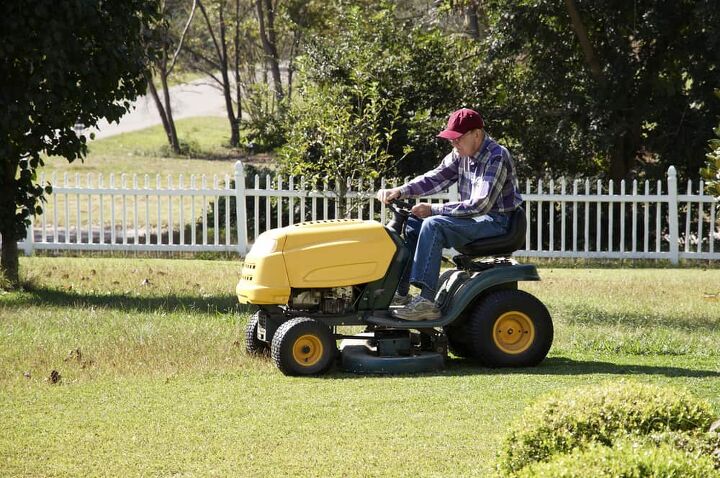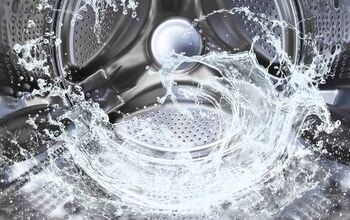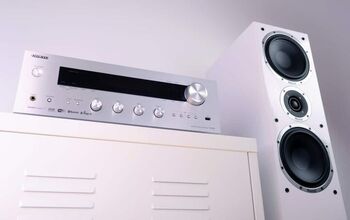How Much Does a Riding Lawnmower Weigh? (Find Out Now!)

Typically, when talking about riding lawnmowers, the most common elements to discuss are its horsepower, cutting capabilities, and turning radius. However, one other critical component is its weights. Chances are that you haven’t thought much about your mower’s weight (unless you had to transport it somewhere), but it matters.
Riding lawn mowers weigh 500 pounds on average. Fuel adds weight to your riding lawn mower and each gallon weighs 6.3 pounds. Industrial riding lawn mowers for large areas weigh up to 2,000 pounds.
However, zero-turn machines are typically heavier, and they can reach 1,000 pounds or higher.
While knowing the weight of your lawnmower is good, we will dive into the reasons why your machine is so heavy. By understanding the various elements that increase a mower’s weight, you can figure out how to adjust it if necessary.
Do You Need a Mower Repair Service?
Get free, zero-commitment quotes from pro contractors near you.

Average Weights for Riding Lawnmowers
To help you get a sense of where your mower stands among the competition, here is a quick chart that outlines the weights of common lawnmower makes and models. We’ll break down the different reasons why mowers are heavier or lighter in the next section.
| Craftsman ProSeries | Deck Width: 42 inches | Weight: 580 lbs |
| John Deere X300 | Deck Width: 42 inches | Weight: 542 lbs |
| Craftsman 27343 | Deck Width: 46 inches | Weight: 525 lbs |
| Yard Machines S029 | Deck Width: 42 inches | Weight: 520 lbs |
| John Deere E150 | Deck Width: 48 inches | Weight: 483 lbs |
| Husqvarna YTH1942 | Deck Width: 42 inches | Weight: 479 lbs |
| Cub Cadet XT2SLX | Deck Width: 52 inches | Weight: 470 lbs |
| John Deere S240 | Deck Width: 48 inches | Weight: 458 lbs |
| Poulan Pro 077 | Deck Width: 42 inches | Weight: 437 lbs |
| Poulan Pro 204 | Deck Width: 46 inches | Weight: 428 lbs |
As you can see, the precise weights can range significantly between models. Also, while the cutting deck can influence the overall weight, a larger deck doesn’t necessarily mean that the mower will be heavier. All of these models are consumer-grade, meaning that they are not built for commercial cutting.
Why Does Weight Matter for a Lawnmower?
At first, you may be wondering why looking at the weight of your mower will make a difference. After all, if you’re just going to drive it out and cut the grass, why should you pay attention to its mass? Here are a few situations where your lawnmower’s weight will come into play.
- Transportation – If you experience any significant engine problems with your mower (i.e., a bent crankshaft), you will have to send it to a repair shop. Doing this means that you’ll either have to drive the machine onto a flatbed truck or try and tow it in a trailer. In either case, the heavier the lawnmower, the harder it will be to move.
- Towing Capacity – One of the best things about having a riding lawnmower is that you can use it for other purposes beyond cutting the grass. If you have to tow anything (i.e., a leaf blower, tree trunk, etc.), you need to know the machine’s capacity. As a rule, heavier mowers will be able to tow more, although it’s really a matter of torque and the kind of machine you have. For example, zero-turn lawnmowers are not ideal for towing because of how they maneuver.
- Fuel Consumption – While there are several reasons why you might be running through fuel more frequently, one of the issues could be a heavy mower. The bigger the machine, the more fuel it will take to move it. Even if you have an electric model, you will need more substantial batteries to keep it going.
- Lifting – Whenever you want to work on your riding lawnmower, it helps to be able to lift it in the air. In most cases, a hydraulic jack will suffice, but sometimes, you need to use a jungle jack to get two wheels up in the air. Knowing how much your mower weighs can ensure that you don’t overload the device.
What Influences the Weight of a Riding Lawnmower?
When breaking down the heaviest components of your mower, here are the factors that will make the most difference.
Lawnmower Type
As a rule, there are three options when picking a riding lawnmower – gas-powered, electric, and zero-turn. Although gas and electric models are roughly the same size and weight, zero-turn units are generally heavier. The reason for the added weight is the complexity of the engine.
Because zero-turn lawnmowers are built to create a smooth, even cut, they need high-powered motors that will ensure uniformity among the grass blades. Also, the zero-turning capability requires pneumatic controls, which add more weight to the machine.
The reason why electric and gas-powered mowers weigh roughly the same is that they both use similar engines. Electric models also have to utilize heavy batteries, which can add as much weight as a gas tank. Overall, the difference between the two is negligible, although an electric mower will weigh less once you remove the battery. This can help if you have to move the machine or lift it.
Engine Size and Horsepower
Part of the reason for the weight disparity between riding lawnmower models is the amount of horsepower they have under the hood. Mowers can range from a few horses to 24, which are used for high-end commercial cutting. The more horsepower a lawnmower has, the more complex (and heavier) the engine.
For example, most 12-horsepower motors will weigh around 330 pounds, which can account for up to a quarter of a mower’s overall weight. By comparison, a 24-HP engine can get up to 550 pounds, thanks to the additional components inside.
Fortunately, by adding more horsepower, the mower can move faster and more reliably, even though it weighs more. Better yet, higher HP motors can use fuel more efficiently, so you don’t have to worry about consuming too much gas either.
Cutting Deck
As we mentioned with our weight table, the size of a cutting deck doesn’t necessarily make a lawnmower substantially heavier. Some of the machines we listed had bigger decks but weighed less than other models. That being said, there are multiple components within the cutting deck that can influence its weight, such as:
- Outer Shell – This piece is often made of steel or aluminum.
- Mowing Blades – These are made of steel, and the number of blades will increase the overall weight.
- Spindles – Each set of blades has its own spindle. So, the more blades on your mower, the heavier it is.
Usually, cutting decks can weigh between 70 and 140 pounds. Manufacturers will use different materials as well, so that can affect the weight as well. For example, high-end mowers will utilize more aluminum alloys, which are durable, don’t rust, and weigh less than steel. However, because of the manufacturing process, these machines will typically cost more upfront.
While having a lighter or smaller deck might seem more beneficial, it is actually a sign of cheaper products. The reason for this is that the cutting deck should be able to withstand obstacles and debris, such as rocks and branches. For example, if your blade strikes a small rock and sends it into the deck shell, you want it to withstand the impact. Lighter materials will dent or crack, while heavier ones will stay rugged.
Wheels
Finally, your lawnmower’s tires can influence its overall weight. Usually, the front wheels are smaller than the rear ones, although you can sometimes adjust that. In many cases, lawnmower tires are tubeless so that they are less susceptible to flats and wear and tear. However, you can easily insert tubes to your tires when they are too cracked or worn to continue being useful. You can find out how to do that here.
While your tires won’t influence the weight of your mower too much, there are instances where you want them to be heavier. Typically, if you are having trouble going up an incline because you’re not getting enough traction, adding wheel weights can help. Similarly, if you’re stuck in the mud, a heavier tire will make it easier to get your mower free.
How to Adjust the Weight on Your Riding Lawnmower
For the most part, your lawnmower’s weight is relatively fixed. However, you can make these adjustments if you want a lighter or heavier machine.
- Change the Tires – This project will change the overall weight slightly. However, some wheel weights can be up to 70 pounds each, or you can make your own from concrete.
- Change the Cutting Deck – We recommend doing this only if you have a reason. You also need to make sure that the new deck will fit onto your rig.
Do You Need a Mower Repair Service?
Get free, zero-commitment quotes from pro contractors near you.

Related Questions
Will reducing my mower’s weight make it faster?
Realistically, yes it will.
Are heavier mowers better than lighter ones?
It really depends on how you want to use the machine. Lighter models can be more agile, making them ideal for working around obstacles. However, heavier units might be better for cutting large swathes of grass.

We are a team of passionate homeowners, home improvement pros, and DIY enthusiasts who enjoy sharing home improvement, housekeeping, decorating, and more with other homeowners! Whether you're looking for a step-by-step guide on fixing an appliance or the cost of installing a fence, we've here to help.
More by Upgraded Home Team



























